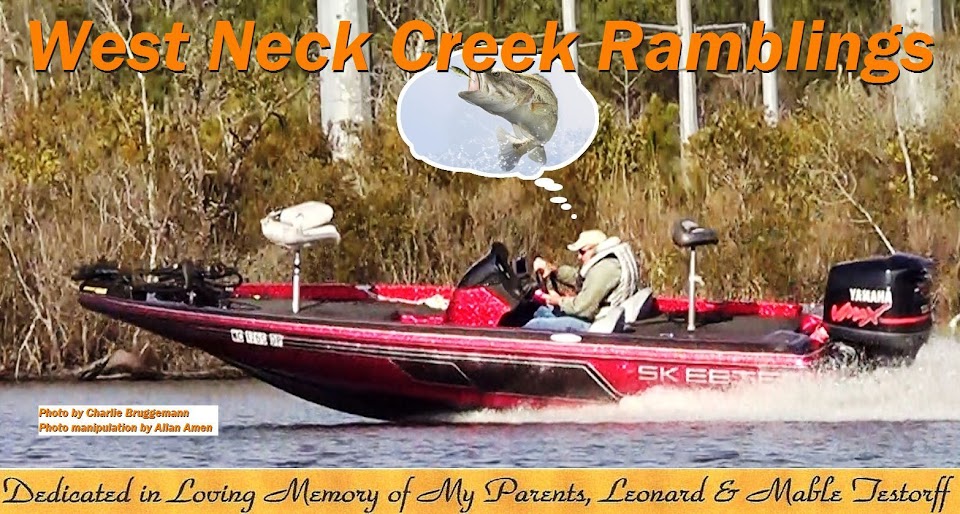Fog delays change things for pro bass anglers. Instead of just exchanging a few pleasantries with one another in the wee hours before going fishing, they sit around on the boats or on the dock and talk for however long the delay lasts.
As veteran angler Charlie Hartley was once reported to have said, "Some of the best stories I've heard have been told during fog delays. I'm a talker, so I love that part of them."
Another thing that sometimes happens is that the anglers get to eat breakfast. One of them remembered a tournament day when one of the guys from a service crew went to a local McDonald's and brought back egg and sausage sandwiches for everyone. You can imagine how popular that guy was that morning. You have to understand the anglers can't go anywhere, because no one knows how long the delay will last.
The other side of fog delays, though, isn't so pretty. They really affect the fishing--not so much that the anglers lose the early fishing time. Rather, it's what causes fog delays and what happens afterward.
Heavy fog develops when the air is colder than the water. Fog is water vapor suspended in the air. Cold air normally is associated with a cold front, which means a light blue, cloudless sky and a bright, burning sun.
When the fog burns off, it doesn't do so slowly or over a period of time--not usually, anyway. It likely happens in 10 or 15 minutes. So when you launch, you do it under tough conditions that have set in immediately. That doesn't have much of an effect on the fishing, but it does hurt the catching.
And there's no time added to the fishing day because of a late launch. The shortened day on the water never is a good thing. All the anglers always think things would have been different if only they'd had a little more time.
The rules are simple but stringent:
* Never leave the ramp without visibility of at least 200 yards.
* Remember, GPS is not radar. It shows shoreline and navigation marks but not other boats.
* Don't let yourself be distracted by your electronics--even for a moment--while you're underway. Tweaking the sonar or GPS or taking a cellphone call while you're running on plane is very risky.
* Never start the outboard motor without your PFD on and your safety lanyard attached.
* If your bow seat obstructs your vision, take it down every time before you go on plane.
* If you can't be sure of the intentions of an approaching boat or other craft, slow down and give way.
* Anytime visibility is minimal as the result of fog or rain, turn on your running lights--even during the day. This also applies even when you're stopped and fishing.
* Never make a turn without looking behind you for overtaking boats.
* Never approach another boat at high speed from behind or head-to-head at close quarters where you can't evade him if he makes a sudden turn.
* Remember that you lose forward vision in most bass rigs until the boat comes out of the hole. Be especially vigilant on take-off.
* It's both illegal and stupid to operate a high-speed boat under the influence of drugs or alcohol.
* Make sure everybody stays seated anytime the boat is on plane.
* Keep a sharp eye out for wakes from tugs, barges and yachts--they can put a 60-mph boat airborne.
* Slow down around bridges and restricted channels where boat traffic is heavy.
* Encourage your boat partners to help keep watch for approaching traffic.
* Though your boat has no brakes, you can use the trim control to quickly slow it down. Dropping the lower unit all the way as you cut power will help stop the boat quickly.
In short, caution and persistent vigilance are as much a part of modern bass fishing as low-profile baitcasting reels and fluorocarbon line. Keep a sharp eye every time you leave the ramp and avoid becoming another statistic.





No comments:
Post a Comment